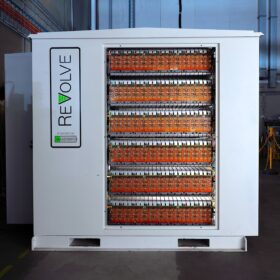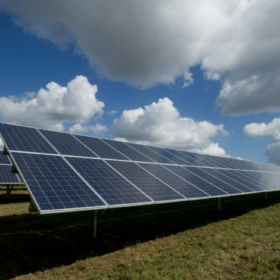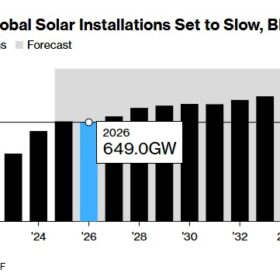The Australian Government, through the Australian Renewable Energy Agency (ARENA), is providing $4.8 million (USD 2.9 million) in funding to Gelion Technologies Pty Ltd (Gelion) to facilitate development of its unique battery technology.
The $9.6 million project will enable Gelion to work with prospective customers as it brings its sulphur cathode battery technology through development and testing phases with products produced at its Advanced Commercial Prototyping Centre (ACPC) in Sydney, NSW.
Along with the construction of the battery development centre, the project will focus on two different battery products: lithium-sulphur (Li-S) and silicon-sulphur (Si-S), which have significant potential as high energy density battery chemistries.
Higher energy density batteries will be able to store more energy per unit of weight. This can enable longer ranges in transport applications such as electric vehicles.
Key applications for higher density batteries include electric vehicles and electric aviation which will benefit enormously from longer ranges made possible by the advance in technology.
Global demand for batteries is projected to grow from 194 GWh of annual demand in 2020 to 2,045 GWh by 2030 with electric vehicles expected to be 87% of the demand and stationary storage 7%.
The Minister for Climate Change and Energy Chris Bowen said the funding is a key example of the Australian Government’s commitment to accelerating the commercialisation of local innovation.
“Australia is emerging as a world leader in alternative battery chemistry, and we need to ensure that we’re well placed to reap the rewards,” Minister Bowen said.
“Batteries are the building blocks of a sustainable energy future, and this project, by demonstrating the potential of alternative battery chemistries, could help us meet our net zero commitments.”
The Minister for Industry and Science Ed Husic said investing in promising new technology is the cornerstone of a prosperous future for Australia.
“Whether it is for storage, transport or operating at grid scale, batteries will be fundamental part of how we live and work in the future,” Minister Husic said.
“Batteries that outperform current models through improved energy density will be highly sought after, both locally and around the world, which is why this investment makes sense for Australians.”





By submitting this form you agree to pv magazine using your data for the purposes of publishing your comment.
Your personal data will only be disclosed or otherwise transmitted to third parties for the purposes of spam filtering or if this is necessary for technical maintenance of the website. Any other transfer to third parties will not take place unless this is justified on the basis of applicable data protection regulations or if pv magazine is legally obliged to do so.
You may revoke this consent at any time with effect for the future, in which case your personal data will be deleted immediately. Otherwise, your data will be deleted if pv magazine has processed your request or the purpose of data storage is fulfilled.
Further information on data privacy can be found in our Data Protection Policy.